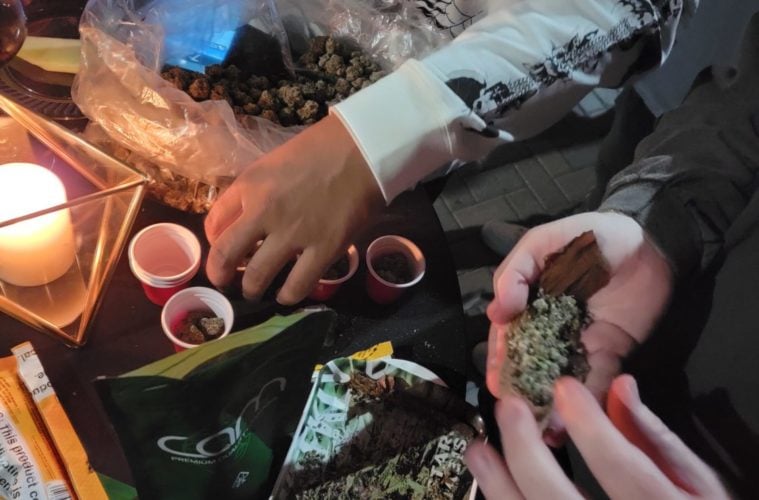The tale of a longtime unlicensed Whittier dispensary came to an end recently with the California Department of Tax and Fee Administration selling the property at auction; it won’t be the last.
As the state looks to find mechanisms to enforce cannabis laws without returning to the massive arrest hauls we saw prior to legalization, expect to see more and more properties that were a part of the state’s once-thriving illicit cannabis market coming up at auction.
That’s not to say the state’s underground cannabis economy isn’t still more than twice the size of its legal one at the very least, but as legalization continues to cross America, the numbers will continue to edge towards the favor of legal pot. Eventually, it will look something like tobacco or booze, where the illicit part of the market domestically represents such a small number, we don’t really think much about it. But sure, you can buy some knockoff Marlboros or moonshine if you really want to.
In addition to the perils of enforcement, states like Maine and Oklahoma also are helping lower prices on the east coast. Why risk shipping a box to New York City from California when Maine is only a five-hour drive, the same as driving from West Hollywood to San Francisco, and God knows how many pounds made that trip both ways. The comfort of putting it in your trunk and driving home with it goes a long way regardless of quality. And that’s not to say a lot of Maine’s top dogs aren’t too far off at this point on quality, but it doesn’t hold up with the best stuff coming out of L.A., the bay, or Sacramento, nevermind the smaller craft operations of The Emerald Triangle north of Wine Country.
So now that we understand a little bit better why things aren’t as awesome as years past, they’re still pretty good if your product holds up. Regardless of what side of the market you’re on, legal or not, the flame holds up. Some people will claim otherwise because some dude in Cleveland found out there were better options out there for the price, but for the most part, if you grow the heat you should be in good shape.
The devil’s advocate might claim the black market is the perfect scapegoat of the moment. While not all, many continuing to participate in the state’s underground cannabis market would be on the other side of the fence if not for licensing hurdles or brutal taxes, once they did make it through the hoops.
It can’t be said enough that a big selling point up north was not the idea of creating a new industry. The plan was meant to bring the one that already existed into the light. While we talked about the criminal justice success stories of Prop 64 many times here at L.A. Weekly, that’s not to take away from its biggest failure to date, transitioning those farmers.
What does that have to do with unlicensed storefronts in L.A.? If we allow the whole underground cannabis market to be placed under the same umbrella, it does a disservice to the people legal cannabis failed. Framing those who thought they were going to have a shot at the legal market as criminals after you slammed the door shut on them in the first place is some real 4D chess stuff.
But the underground storefront model is different than farmers who didn’t get their shot. And that’s not to say there aren’t people operating under the radar in Los Angeles that are caught in its eternal equity limbo or some other wrench in the process. But the way those kind of people were expected to be absorbed and participate in the market was a lot different than legacy farms.
Sure, some of the dispensaries that have closed shop still want to exist, but many had avoided the hoops and hurdles of regulation since the ICO debate of the 2000s. Everyone expected that in a functional cannabis market, the trap shops would dry up. In the same sense again that illicit tobacco and liquor stores are few and far between. But we expected the farmers to transition more so than the trap shops that had always skipped the paperwork.
So make sure to understand the different challenges that may have trapped people in the underground market as opposed to the ones who chose to be there.
Advertising disclosure: We may receive compensation for some of the links in our stories. Thank you for supporting LA Weekly and our advertisers.

